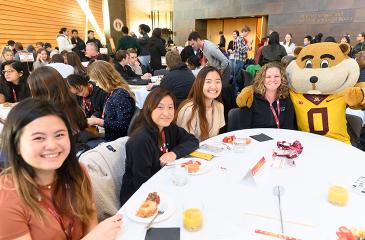It’s no secret that we’re facing potential shortages in future health care staffing or that we need a more diverse workforce.
That’s why the health sciences have so many creative pipeline programs designed to engage young people and give them exposure and guidance to careers in these fields.Here are some outstanding examples:
- OACA’s Mini Medical School presents short courses in timely subjects like global health, cancer, and the science of COVID-19. Open to the community, over 300 high school students have attended the past three sessions.
- From undergraduate students to faculty researchers, the Clinical & Translational Science Institute’s Pathways to Research Program (PReP) & Research Education, Training, and Career Development (CTSI-Ed) offer a continuum of career support that aims to develop a diverse workforce by giving young researchers from underrepresented populations training, mentorship, and practical opportunities to advance their research careers.
- Masonic Cancer Center’s M-ASCEND: Advancing Science, Enhancing Diversity introduces 9th and 10th grade students to the science of cancer and to career development skills and opportunities.
- The School of Public Health Division of Biostatistics is working with the St. Paul public high schools to develop new curriculum based on environmental pollution research. Students gain experience with biostatistics, environmental health sciences, and public health.
- The College of Veterinary Medicine offers Vet Camp, interactive education for students in grades 9-12, who are interested in learning about veterinary medicine as a career.
- The College of Pharmacy, Duluth offers Pharm Camp, where students 8-12 get hands-on experience exploring the basics of the science from medicinal herbs to creating ointments.
- The Institute for Engineering in Medicine’s Inspire Conferences bring high school students from across the state together with University experts to engage them in how these professions work together to solve complex problems.
- The Medical School’s Duluth Campus has a long and rich history of offering education, enrichment, and support opportunities for Native American students from kindergarten to graduate school.
As we educate the future generation of health sciences practitioners, researchers, and educators, we need to ensure we are reaching out early and often to include students from across the state in opportunities to learn more about the excitement of health sciences and the career opportunities they offer.
Clinical Research News
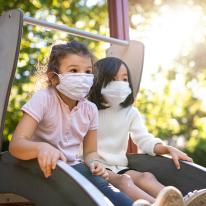
2021 Research in Child Health Forums: COVID-19 Pandemic Affecting Pediatric Populations
Join Clinical and Translational Science Institute and Children's Minnesota on May 12 for a webinar forum to discuss priorities and opportunities for research to improve the health of Minnesota's children. Presenters will share their research with a focus on the impact of COVID-19 on pediatric populations.

Institute For Engineering In Medicine to Host New Research Center for Organ and Tissue Preservation
The University of Minnesota is one of two institutions in the United States to host a new center established by the Biostasis Research Institute (BRI) aimed at creating human organ banks through the cryogenic storage of organs donated for transplantation. BRI is launching and funding the Organ and Tissue Preservation Center at the University, which will focus on technologies to safely and rapidly rewarm cryopreserved organs and other living systems. This center will be housed within the Institute for Engineering in Medicine (IEM) and will be led by IEM Director John Bischof and Medical School Department of Surgery faculty member Erik Finger.
Clinical IPE Training News

CUHCC IPE interns OACA Interprofessional Internship Highlights: CUHCC Project Team
Ally Taubenheim RN, PHN, BSN, DNP '22, from the School of Nursing, Kaushik Mukherjee, MSc, PhD, DDS ’22, from the School of Dentistry, and Vanessa Santamaria, BS, MHA 22', from the School of Public Health are working to update and re-design learning material for students and residents completing rotations at Community-University Health Care Center (CUHCC) as part of their project to improve interprofessional practice care models and combine efforts with other clinics doing similar work. The team recently finished developing the landing page for learners on the new intranet site, which will be a key resource for learners' on-boarding process and serve as an ongoing resource.
U-Wide Events and Opportunities
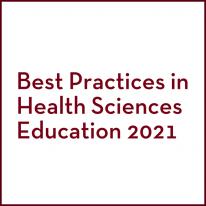
Best Practices in Health Sciences Education
Best Practices in Health Sciences Education is an annual tradition that brings together educators, administrators, learners, and thought leaders to foster connectivity and share cutting-edge best practices and research-based methodologies in health sciences education. The 2021 theme focuses on intersectionality—how faculty, staff, students, and practitioners can be organizational change agents in dismantling privilege in the classroom and beyond. Register for the May 5-6 virtual conference.
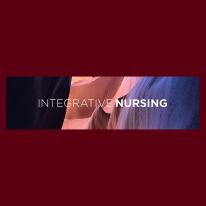
Register for Integrative Nursing Webinar
Consciousness expanding plants, fungi, and animals have been interwoven with the healing and visionary practices of indigenous people for millennia. Modern science and clinical practice is beginning to catch up. A new paradigm of practice is emerging where severe and intractable conditions such as depression, anxiety, and PTSD are being treated with one or two doses of medication—within a therapeutic context—and yielding immediate, large and lasting reductions in symptoms. The principles of integrative nursing are highly congruent with the practice of psychedelic therapy, an inherently whole person approach. Nurses have an important role to play in shepherding this emerging practice in a way that is ethical, equitable, and caring. This lecture on May 12 will cover the history of sacred medicine traditions, current clinical science, and the role of integrative nursing.
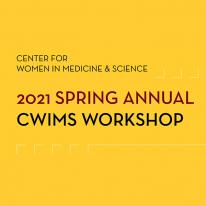
Center for Women in Medicine & Science 2021 Spring Annual Workshop
Join the Center for Women in Medicine and Science for their annual spring workshop on May 13. With 20 years working in higher education, keynote speaker Sherlonda Sharp is "a creative, pragmatic, equity-minded, innovative speaker and facilitator who speaks truth to power and offers creative solutions to organizational and individual challenges." The workshop will include a breakout networking session.
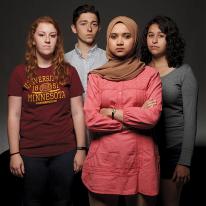
April is Sexual Assault Awareness Month
The goal of Sexual Assault Awareness Month is to draw attention to the prevalence of sexual assault and educate individuals and communities about how to prevent it. "Sexual harassment, abuse and assault are widespread problems that happen in all communities, including online spaces. It's important now more than ever for our University to work toward eliminating all forms of sexual misconduct, and to swiftly respond to every incident," said AVP Carolyn Porta, who co-chairs the Research Committee for the President's Initiative to Prevent Sexual Misconduct.
